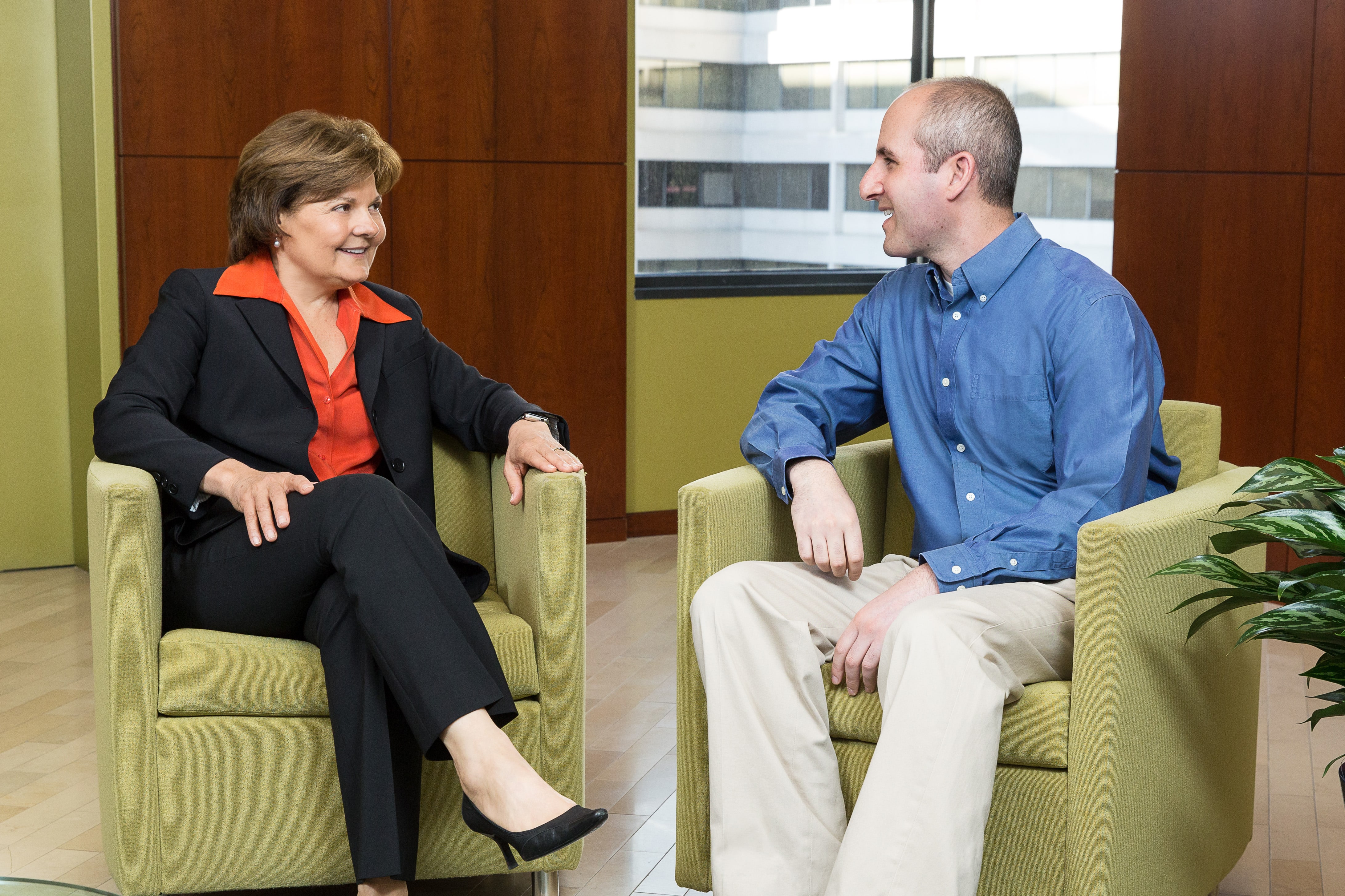
Ditch the procrastination habit to increase productivity, reduce stress
We’ve all done it. Some more than others, and for a tangle of reasons. Put off that tough task. Delay that uncomfortable phone call. Wait to the last moment to write a report.
It’s a habit that can derail even the most savvy leader. And it’s a tough trait to manage in staff.
Procrastination.
The good news is there’s science behind why we procrastinate and there are many ways to address it, whether it’s dealing with your own habit or helping others overcome the tendency.

Ali Navidi, Psy.D., an executive coach with IOCI, is an expert on procrastination and has helped hundreds ditch the habit in order to increase productivity, reduce stress and live more happily.
Navidi finds almost everyone procrastinates to some extent – it’s nearly universal. The level of the challenge it presents is a matter of degrees. “Is it holding you back or causing you problems, because we all do it to some extent,” Navidi acknowledges.
Research shows that procrastination is one of the most expensive invisible costs in business today. A 2012 poll of 10,000 U.S. employees revealed that the average worker self-admitted to wasting 2.09 hours each day on non-job-related activities. Considering the average salaried employee makes $39,795, that means procrastination costs employers $10,396 per year – per employee.
And for the employee, high levels of procrastination is associated with lower salaries, shorter durations of employment and a greater likelihood of being unemployed or under employed rather than working full-time.
Because of its pervasiveness, executives and managers are keenly interested in getting help with reducing procrastination. “They seem interested right away because they have a problem with it or manage or work with someone who does,” Navidi says.
We sat down with Navidi to tap into his expertise on procrastination.
In general, why do people procrastinate at work?

Procrastination is an interesting problem because it’s so complicated. The act is simple; I’ve got something to do and I should do it now, but I’m going to do it later and I’m going to pay a price for that.
But it’s so tricky to deal with because the causes are complicated: anxiety, arrogance, feeling entitled, self-esteem issues – that’s a short list. And then there are interactions in those things. A lot of people go through life dealing with procrastination and feel hopeless in addressing it.
I recently read some research that shows people with low self-esteem engage in avoidance behaviors when they are under stress, making them more likely to procrastinate. So it gets tricky because it becomes a combination of self-esteem issues and stress or anxiety.
What are the pitfalls chronic procrastinators face?
One form of procrastination is that, if there isn’t a deadline, they can’t motivate themselves to do it. So in the workplace procrastinators miss out on a lot of developmental opportunities. They get the day-to-day stuff done, but they don’t get the extra training or work on the project that would really wow everybody. So they miss opportunities to differentiate themselves.
And as you move up in an organization, less and less of your work is deadline-driven, so procrastinators have more and more trouble staying on track since they have fewer deadlines and less oversight.
Another obvious pitfall is that it’s frustrating for colleagues – and honestly for the procrastinator, too.
Being a procrastinator means you’re not really free. You’re locked up and can’t pursue life the way you would like to. You’re not captain of your ship.
People who suffer from this often develop a learned helplessness and a low-grade depression that makes them feel they are not really in control of their lives – and the worse the procrastination, the worse that feeling is.
What are the traits of workplace procrastinators? How can you spot one?
Procrastination goes hand in hand with little white lies. You’ll see a lot of those. You’ll begin to think there are a lot of random weird things that happen to these people. They have a lot of relatives with problems and their water heater tends to break.
And it’s stressful to be a procrastinator, so they tend to not be the healthiest people out there. They may be out of shape and they are often sick a lot.
From their viewpoint, procrastinators think people believe them because procrastination is about short-term thinking, and part of the problem is they tend to go toward the short term and they don’t think of the eight other times they used a similar excuse.
If I’m a manager and I don’t want to hire procrastinators, I would make some of the tasks involved in applying for the job or post-interview tasks a bit annoying or difficult in some way to see how long it takes a candidate to complete them. Responses to the tasks will range from two days to two weeks, but you’ll see that the procrastinators will be on the edge of the deadline.
Are there times when procrastinating is beneficial? What does that look like?
Some people will say they always pull things off or that they do their best work against deadline, but it’s hard to prove because most of those people have never NOT procrastinated. We just don’t know if the deadline pressure is really helpful, but I’d expect their work would be better if they had more time.
This thinking goes along with the arrogant type of procrastinator that thinks, “I’m smart enough to pull off procrastinating.” But they don’t take into account they are sacrificing quality and they really aren’t getting away with anything. They are doing the same work, they are just more stressed and the people they work with are frustrated.
What opinions do others hold of those who tend to constantly create delays at work?
There’s a lot of anger that gets directed at procrastinators and it’s not appropriate to display it in the workplace, so you get a lot of indirect reactions. Procrastinators may be excluded from things. People may speak negatively about them. Interactions with the procrastinator may feel awkward.
Nothing can derail a team faster than one weak link. With just one weak link you lose that cohesiveness because everyone has to stop and follow up on that person. It breaks the trust down.
The main cause of the anger toward the procrastinator is that trust is being eroded. You’re always wondering if they will come through or if you now have the extra task of tracking them – so it creates more work for everybody.
How can a coach help people stop procrastinating for the long haul?
There are tons of techniques to try, and depends on who you are dealing with. So I always start with an assessment and see if the person has discipline. Discipline is the capacity to do something. If I gave you a new habit, could you implement it?
Now some might only procrastinate when something is new to them. And once we find out if the person has discipline, you can introduce techniques to combat it. On the other hand, if someone doesn’t have discipline, we can help them develop it.
Early in my career, I felt like I had a lot of good techniques for helping procrastinators but they would fail with some people because there was a more fundamental problem of lacking discipline. That’s why I’ve now developed techniques to help people develop discipline.
One tried-and-true technique is helping the person understand how they are lying to themselves. Procrastinators’ thoughts are egosyntonic – their behaviors, values and feelings are in harmony with the needs of their ego or consistent with their self-image. We have to help them become aware of their thoughts, moving them to become egodystonic, which means they become aware of the thoughts, impulses and behaviors that are leading to the procrastination.
Procrastinators tend to have a voice in their heads that tells them “I’ll feel like doing this later.” Or, “Now is not a good time to work on this but tomorrow is perfect.”
One way we can do that is to have them keep a journal on their thoughts around what they are procrastinating on and then help them to recognize the lies they tell themselves. Procrastinators tend to have a voice in their heads that tells them “I’ll feel like doing this later.” Or, “Now is not a good time to work on this but tomorrow is perfect.” So we want them to start recognizing these thoughts and then help them combat them with techniques like changing their self-talk.
What are the top three tips you have for those who have a procrastination habit?
Get help. This is a problem that effects you at every level – your health, your freedom, your success, your personal life, so address it earlier rather than later. I describe it as driving around with one foot on the gas and one foot on the break. Why keep driving around with your breaks on?
Determine your level of discipline. Are you disciplined or not, and to what extent? To find out, start with something simple – make your bed every morning or put your clothes away daily for 30 days. Discipline builds as you practice it.
Focus on doing the hard things first. If you have discipline but still procrastinate, focus on doing the hard things first. If you don’t make it to the gym, but want to, do that first. If you tend to procrastinate on big projects, work on those first before you open your email.
Procrastination is just one issue that can be addressed with executive coaching. IOCI can also help with issues like resilience, productivity and leading through adversity. Contact IOCI to learn more.

